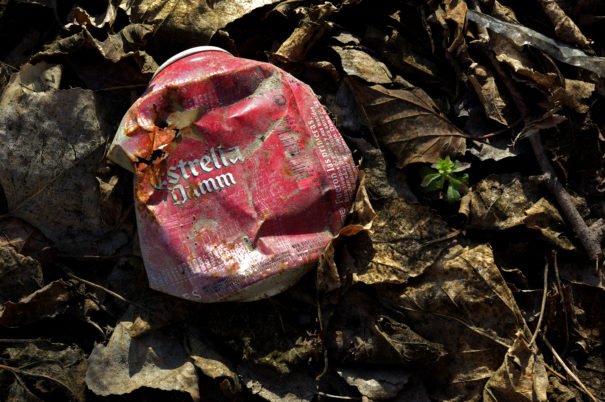
Saturate Your Mind in Beer When the Obscenities of Mass Tourism Prove Overwhelming

Saturate Your Mind in Beer When the Obscenities of Mass Tourism Prove Overwhelming
Lukewarm Beer on La Rambla
Victor Ramos sat at a table in a terrace restaurant on La Rambla in Barcelona. He stared glumly into the distance. His eyes were clogged with tiredness and his back, bent by years of work, made sitting uncomfortable. His knees hurt, too, and at about this time of day, around mid-afternoon, the sun was always at its most overwhelming. Ramos felt his age only too keenly.
He was one of the few old things left on La Rambla, one of the few people remaining from a forgotten time. It was this small thing that kept him going, kept him making the short walk from his small flat in the Raval, where he lived alone, to one of the many cafes that line the famous street.
I met Ramos in the final few months of my time in Barcelona. I had moved to the city with my girlfriend in the hope of staying there permanently, but things hadn’t worked out, and La Rambla had become a Mecca-cum-metaphor for my frustration. I would go there and goggle at the sweaty sunburnt sight of modernity, drinking lukewarm Estrella Dams, until my mind was saturated by beer and boredom. Then one day, when the obscenities of mass tourism were becoming less fascinating, I sat next to him on one of the street’s many terraces. He was a crotchety old man, reminiscing about a glorious past.
I ordered beer, another lukewarm Estrella Damm, and Ramos sat murmuring over a milky coffee. As he babbled, he stared ceaselessly at the battered cardboard sign of a nearby shoe shiner: “5 euros for a polish” it read. The shoe shiner sat with his back to us, the worn chair in front of him empty and only the faint suggestion of his last client creased into its faux-leather. “Bet he doesn’t get many customers these days,” Ramos offered, as if we had been speaking for hours. “You know this whole street used to be lined with shoe shiners, back when it was beautiful, that is.” He went quiet again and resumed his staring.
It was odd watching them both: the crusty octogenarian and the hapless shoe shiner, both goaded by sun-oiled sinewy bodies and rubber flip-flops, and both overlooked by an age in pursuit of its own time and uses.
Ramos started to tell me what La Rambla was once like. It was a sinuous tree-lined expanse, full of theaters and markets. It ran from Plaça de Catalunya to the sea, he said. It was a street of fetid fish merchants, slick shoe-shiners, and solemn salesmen; of bombastic artists boozing in posh restaurants, and theatregoers out for an evening stroll. Work and leisure existed cheek by jowl. “It was a street full of its city. Now, it is a street full of the world… a world that doesn’t care about what the street once was.”
In front of us, people slouched over jugs of astringent sangria and shoveled soggy paella into their mouths. They packed the roadside terraces that in turn congested the street with a mass of plastic tables. Next to these establishments, more sightseers marched down the street in a sizzling miasma of beer, sweat, and sun lotion. Among them, half-naked men paraded their pectorals and sexual desires, and half-cut hen parties stumbled into bars and spluttered their drink orders.
I told Ramos that at any given moment around 80 percent of the people on La Rambla were tourists, and that this year anywhere between 8-9 million foreigners would visit the city. He shook his head. He knew that tourism wasn’t all bad, that the city had experienced a much needed lift after the 1992 Olympics. But somewhere something had changed, something had gone wrong. Economic success had converted central Barcelona into a theme-park, and it saddened and disgusted him in equal measure. But he knew his disdain didn’t matter. The street was changing, and he was too old and too poor to follow its lead.
“Every morning I wake up and wish I didn’t have to come here,” he told me, “yet, the street has always been part of my life, and I can’t stop living my life.” Ramos told me he had passed the time with his friends here, wooed his wife here, started long walks to the sea from here; he did things with people who, and in places that, no longer exist. He had only the outlines of his memories, and like a palimpsest, these recollections had been written over many times by the pressing needs of the present.
He frowned deeply, and began to organize himself to leave. He said he hadn’t talked to anyone for so long in months, and that he was happy to have told someone about his Rambla. He told me he’d return the next day, back on the street that dragged further from his past. As I watched him walk into the distance, I ordered another beer. Beside me a gaggle of giggly young women had taken over Ramos’s table. The party ordered a sangria and began Instagramming each other’s sunburnt feet.